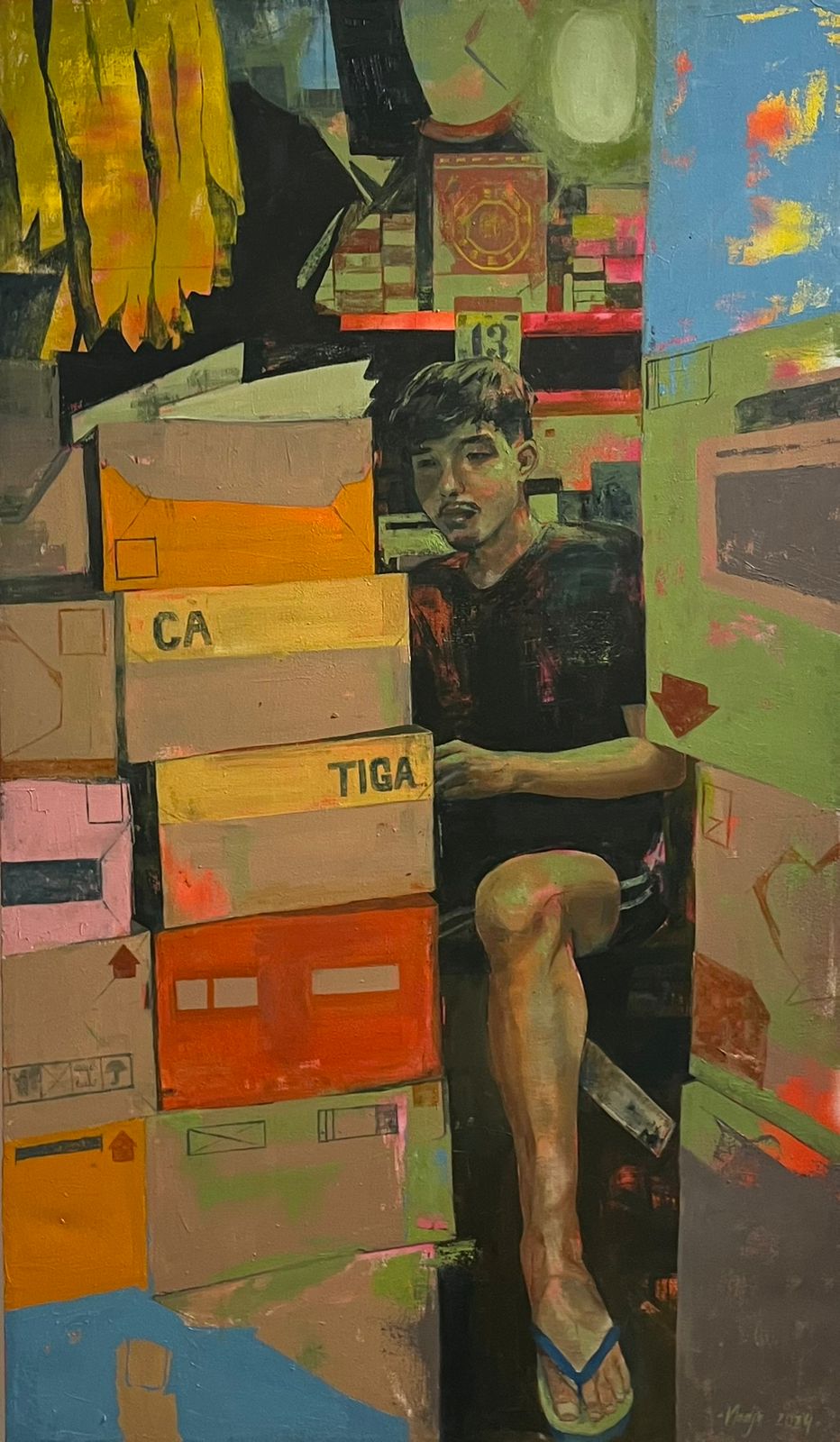
The Mogul
"The Mogul" captures the essence of Chinese-Indonesian culture through a compelling narrative that challenges stereotypes. This artwork delves into the common perception that Chinese Indonesians often inherit their parents' shops, becoming shop owners rather than pursuing their aspirations. The shop, depicted as a symbol of heritage and a potential constraint, serves as a focal point. Traditional elements from Chinese and Indonesian cultures are interwoven, reflecting the rich, dual identity of the community. The portrayal of the protagonist, who stands at a crossroads between tradition and ambition, invites viewers to explore the complexities of familial duty and personal fulfillment. Titled "The Mogul," the artwork underscores the duality of the aspiring shop owner. On one hand, "mogul" implies success, power, and influence, typically associated with prominent business figures. On the other hand, it highlights the internal conflict many young Chinese-Indonesians face who grapple with the expectation to continue the family business. The protagonist's gaze, filled with determination and contemplation, mirrors the tension between following a predetermined path and forging a new one. The piece prompts a deeper reflection on what it means to truly succeed by juxtaposing the traditional shop setting with symbols of individual dreams. "The Mogul" ultimately challenges viewers to reconsider the narratives imposed by culture and appreciate the courage it takes to pursue one's dreams.

Nadja Adia Saffa
Nadja Adia Saffa, originally from Surabaya and now in Jakarta, focuses on urban life and social issues in her art, influenced by her six years as a graphic designer. Her artistic inspirations include Juraj Florek, Bernadet Timko, and S. Sudjojono. She defines success as spiritual fulfillment and inspiring others. Art shifts her perspective, helping her value small, overlooked aspects of life. Currently studying printmaking, Nadja explores themes like Chinese-Indonesia...
Also Made From
Nadja Adia Saffa







